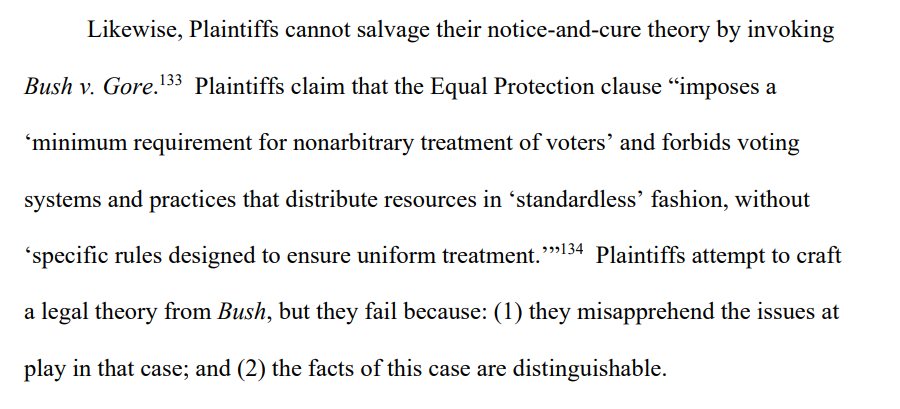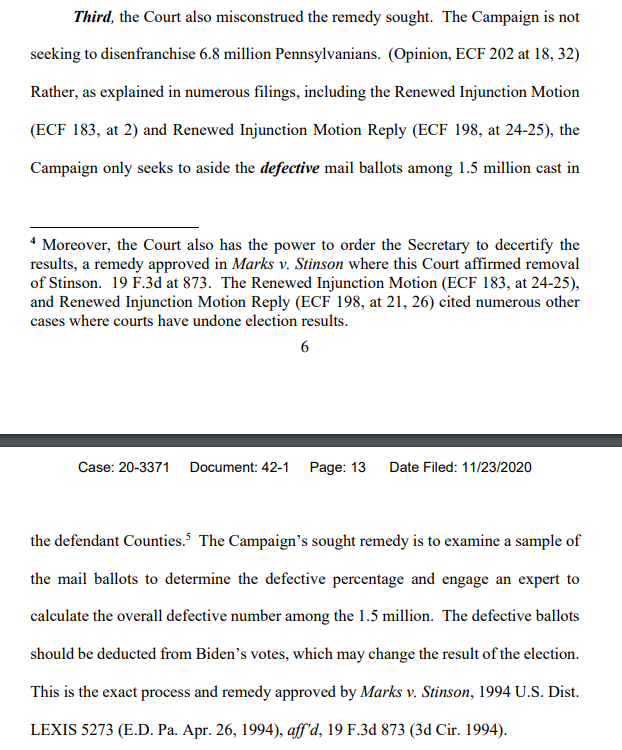
The judge observes that the Trump campaign is "trying to mix-and-match claims to bypass contrary precedent." 
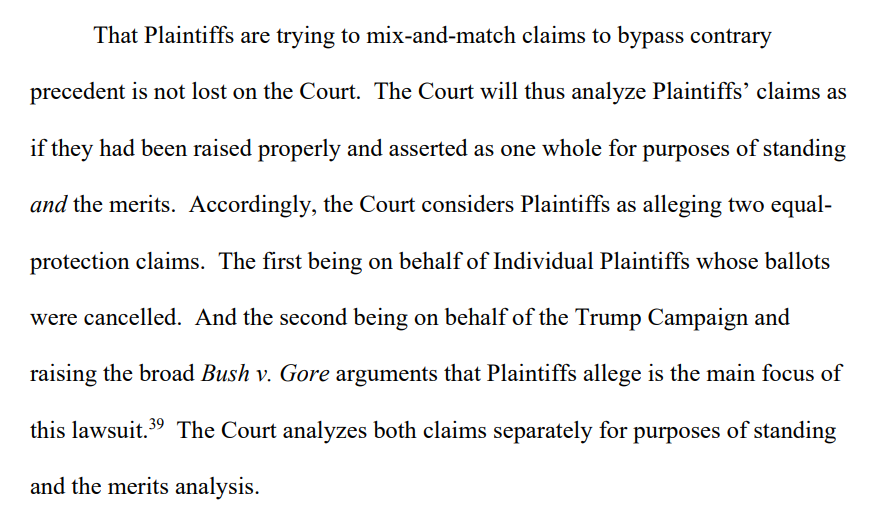
The court rules that both the Trump campaign and its two attempted-voter plaintiffs lack standing to bring the case. 
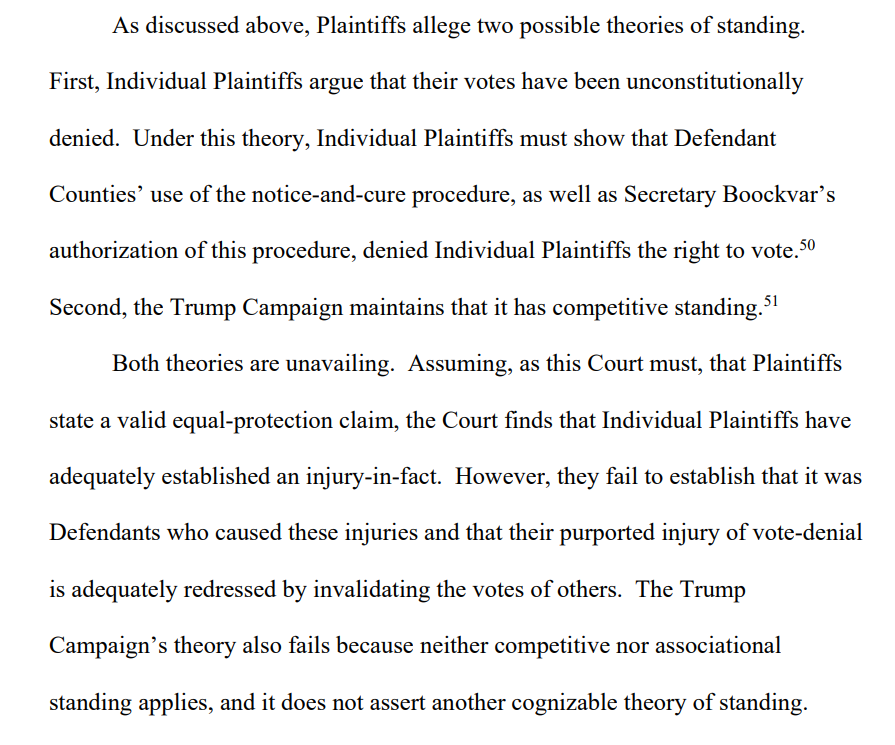
The voter-plaintiffs lack standing because although they were denied the right to vote (because their ballots were invalid), they sued other counties and the state that did not invalidate their votes, not the counties that did. 
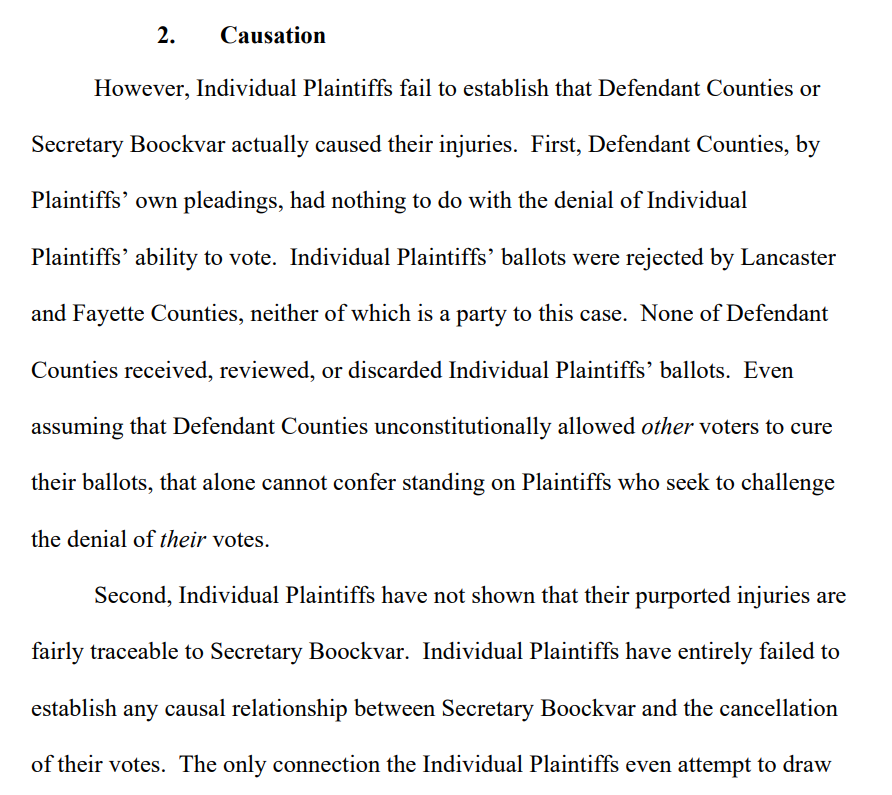
As to the Trump campaign's own standing, the judge says that's "particularly nebulous, because neither in the [complaint] nor in its briefing does the Trump Campaign clearly assert what its alleged injury is." Instead, the court had to "piece together the theory of standing." 

The judge told Trump's lawyers at the hearing last week he would go read the case they cited to establish standing. He did. It "does not contain a discussion of competitive standing or any other theory of standing applicable in federal court." 

The judge is clearly unimpressed with the quality of the Trump team's legal advocacy.
The court rules that even if Trump's campaign had standing to bring this case, which it doesn't, its Equal Protection claim would still fail on the merits. 
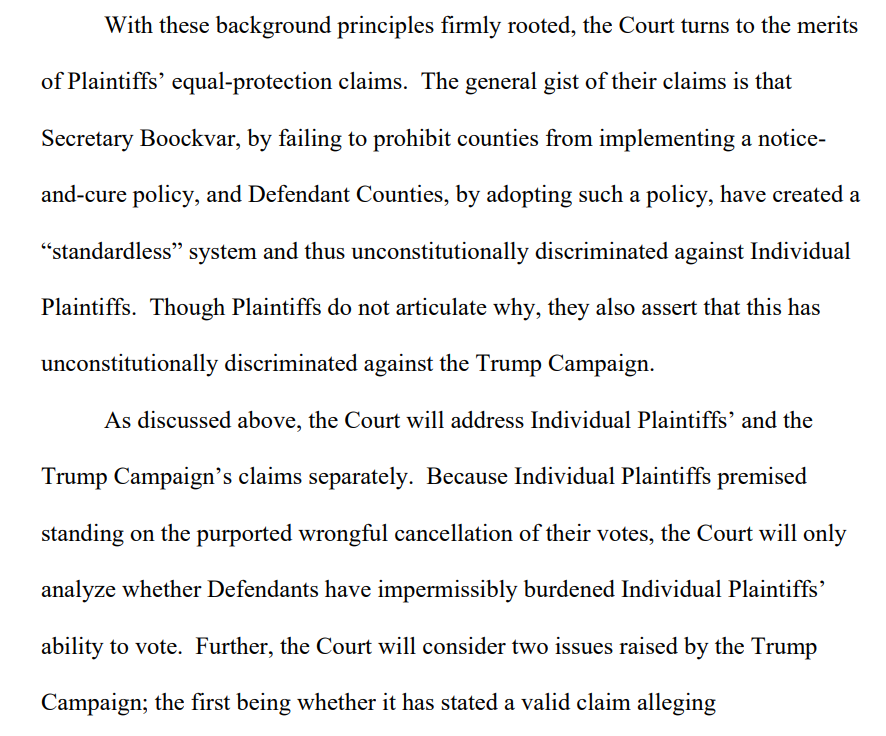
The court says it is "perfectly rational for a state to provide counties discretion to notify voters that they may cure procedurally defective ballots." This is not an Equal Protection violation. 
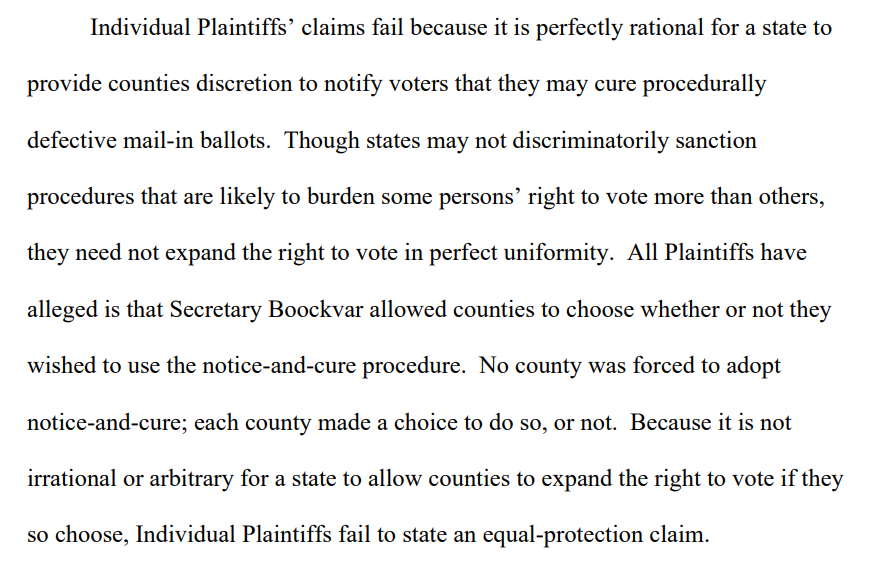
Judge: "Even assuming that they can establish that their right to vote has been denied, which they cannot, Plaintiffs seek to remedy the denial of their votes by invalidating the votes of millions of others. ... This is simply not how the constitution works." 

The court seems puzzled that Trump wants to invalidate the presidential race, but uphold other races on the same ballot. "Even if it were logically possible to hold PA's electoral system both constitutional and unconstitutional at the same time, the Court would not do so." 

The voters who said their invalid ballots weren't counted could have just asked the court to order them counted. Instead, "they ask the Court to violate the rights of 6.8 million Americans. It is not in the power of the Court to violate the Constitution." 
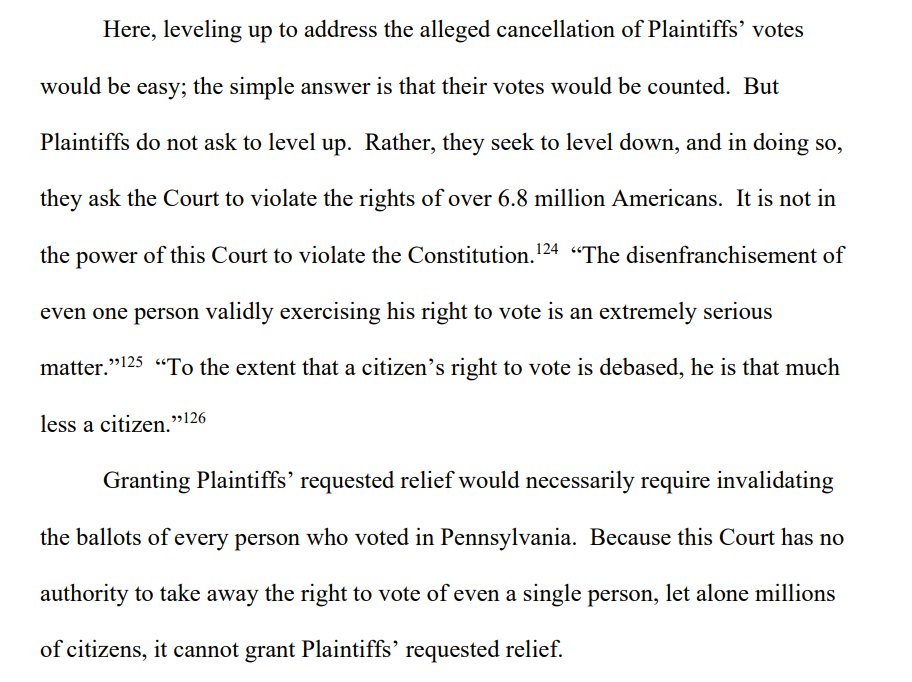
This is a theme: Trump's legal team made a total hash of his case. This is not the kind of thing you see in cases that have been litigated well. 

The campaign's theory that its poll-watchers were denied access isn't an Equal Protection violation because they didn't allege that Biden's got better access. "Without actually alleging that one group was treated differently than another, Plaintiff's first argument falls flat." 

The court dismisses Trump's case with prejudice and denies permission to file an amended complaint to restore some of the arguments his lawyers said they removed from the case by mistake. It would merely "unduly delay resolution of these matters." 
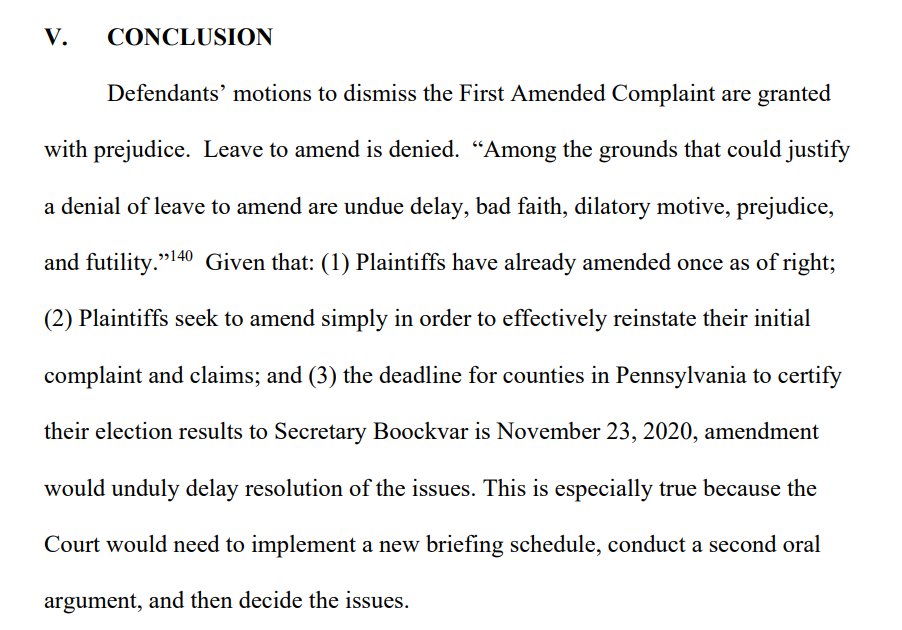
The short explanation of the reasons the judge tossed President Trump's Pennsylvania lawsuit is: All of them.
The plaintiffs lacked standing. They lacked evidence. They wanted an unconstitutional remedy. Their legal arguments were "strained" and "without merit."
The plaintiffs lacked standing. They lacked evidence. They wanted an unconstitutional remedy. Their legal arguments were "strained" and "without merit."

Trump's lawyers *really* made a mess of this. The judge said one claim, "like Frankenstein's Monster, has been haphazardly stitched together from two distinct theories in an attempt to avoid controlling precedent."
This is ... the Kraken? I dunno.
This is ... the Kraken? I dunno.

This leaves Trump with two remaining lawsuits in which his lawyers can offer up the evidence they've promised of a massive scheme to subvert American democracy.
• • •
Missing some Tweet in this thread? You can try to
force a refresh
